| | BOOK FORMAT
Flexi, 5.5 x 8.5 in. / 248 pgs / 110 color. PUBLISHING STATUS
Pub Date 4/15/2025
Active DISTRIBUTION
D.A.P. Exclusive
Catalog: SPRING 2025 p. 27 PRODUCT DETAILS
ISBN 9783753306971 TRADE
List Price: $45.00 CAD $67.50 AVAILABILITY
In stock | TERRITORY
NA ONLY | | THE SPRING 2026 ARTBOOK | D.A.P. CATALOG 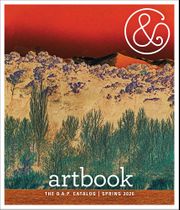 | | Preview our SPRING 2026 catalog, featuring more than 500 new books on art, photography, design, architecture, film, music and visual culture.
|
| | | 2G Essays: Fernanda CanalesMy House, Your City: Privacy in a Shared WorldEdited by Moises Puente.
The award-winning Mexican architect analyzes two centuries of residential architecture, tracing the environmental impact of housingFormerly the Louis I. Kahn Visiting Assistant Professor at Yale University, architect Fernanda Canales (born 1974), together with her studio, was named one of the world’s “100+ Best Architecture Firms” by Domus magazine, and was cited by the New York Times as one of 10 women changing the face of international leadership. Canales’ practice almost exclusively focuses on residential buildings. Her solutions address the environmental challenges of a given area or of a changing climate at large: whether rebuilding a family home damaged by an earthquake or designing a new house around the existing trees and vegetation. In this collection of essays published by 2G, Canales analyzes the evolution of the house by dismantling three critical assumptions: the house as a place of rest separate from work, the house as an object of private property and the house as a sanctuary for the nuclear family.
|
|  | Free Shipping UPS GROUND IN THE CONTINENTAL U.S.
FOR CONSUMER ONLINE ORDERS | |
| | | | 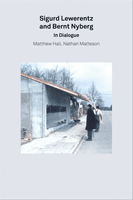 | Walther König, KölnISBN: 9783753308401
USD $39.95 | CAD $59.95Pub Date: 12/9/2025
Active | In stock
|
|  | Walther König, KölnISBN: 9783753306971
USD $45.00 | CAD $67.5Pub Date: 4/15/2025
Active | In stock
|
|  | Walther König, KölnISBN: 9783753301921
USD $39.95 | CAD $55.95Pub Date: 1/10/2023
Out of stock indefinitely | Not available
|
|  | Walther König, KölnISBN: 9783960988328
USD $39.95 | CAD $47Pub Date: 7/6/2021
Out of stock indefinitely | Not available
|
|  | Walther König, KölnISBN: 9783960988878
USD $39.95 | CAD $47Pub Date: 7/20/2021
Active | In stock
|
|  | Walther König, KölnISBN: 9783960988328
USD $39.95 | CAD $47Pub Date: 7/6/2021
Out of stock indefinitely | Not available
|
|
| FORTHCOMING AND NEW: ARCHITECTURE | 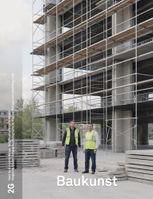 | Walther König, KölnISBN: 9783753309101
USD $55.00 | CAD $85Pub Date: 4/7/2026
Forthcoming
|
| 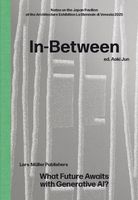 | Lars Müller PublishersISBN: 9783037788011
USD $35.00 | CAD $54Pub Date: 6/2/2026
Forthcoming
|
| 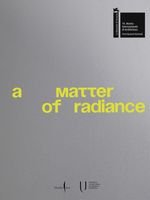 | Marsilio ArteISBN: 9791254633182
USD $40.00 | CAD $62 UK £ 34Pub Date: 3/24/2026
Forthcoming
|
| 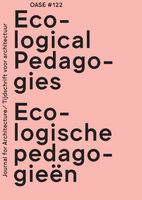 | nai010 publishersISBN: 9789462089525
USD $40.00 | CAD $62Pub Date: 6/30/2026
Forthcoming
|
| 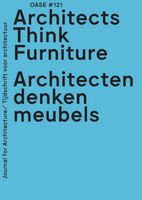 | nai010 publishersISBN: 9789462089518
USD $40.00 | CAD $62Pub Date: 6/2/2026
Forthcoming
|
| 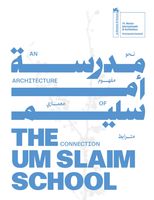 | Mousse PublishingISBN: 9788867496815
USD $35.00 | CAD $53Pub Date: 1/20/2026
Active | In stock
|
| 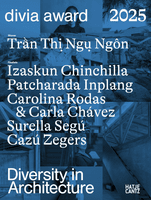 | Hatje CantzISBN: 9783775760768
USD $39.95 | CAD $59.95Pub Date: 6/2/2026
Forthcoming
|
|  | Walther König, KölnISBN: 9783753308401
USD $39.95 | CAD $59.95Pub Date: 12/9/2025
Active | In stock
|
|  | Spector BooksISBN: 9783959058971
USD $35.00 | CAD $49Pub Date: 12/9/2025
Active | In stock
|
|  | ArquineISBN: 9786078880508
USD $38.00 | CAD $54 UK £ 30Pub Date: 12/2/2025
Active | In stock
|
|  | Kaph BooksISBN: 9786148035944
USD $40.00 | CAD $55Pub Date: 9/9/2025
Active | In stock
|
|  | Kaph BooksISBN: 9786148035753
USD $40.00 | CAD $55Pub Date: 9/9/2025
Active | In stock
|
|
|
| |
| |

|
FORMAT: Flexi, 5.5 x 8.5 in. / 248 pgs / 110 color.
LIST PRICE: U.S. $45.00
LIST PRICE: CANADA $67.5
ISBN: 9783753306971
PUBLISHER: Walther König, Köln
AVAILABLE: 4/15/2025
DISTRIBUTION: D.A.P.
RETAILER DISC: TRADE
PUBLISHING STATUS: Active
AVAILABILITY: In stock
TERRITORY: NA ONLY | D.A.P. CATALOG: SPRING 2025 Page 27 | PRESS INQUIRIES
Tel: (212) 627-1999 ext 217
Fax: (212) 627-9484
Email Press Inquiries: publicity@dapinc.com | TRADE RESALE ORDERS
D.A.P. | DISTRIBUTED ART PUBLISHERS
Tel: (212) 627-1999
Fax: (212) 627-9484
Customer Service: (800) 338-2665
Email Trade Sales: orders@dapinc.com |
| 2G Essays: Fernanda Canales
My House, Your City: Privacy in a Shared World Published by Walther König, Köln.
Edited by Moises Puente. The award-winning Mexican architect analyzes two centuries of residential architecture, tracing the environmental impact of housing Formerly the Louis I. Kahn Visiting Assistant Professor at Yale University, architect Fernanda Canales (born 1974), together with her studio, was named one of the world’s “100+ Best Architecture Firms” by Domus magazine, and was cited by the New York Times as one of 10 women changing the face of international leadership. Canales’ practice almost exclusively focuses on residential buildings. Her solutions address the environmental challenges of a given area or of a changing climate at large: whether rebuilding a family home damaged by an earthquake or designing a new house around the existing trees and vegetation. In this collection of essays published by 2G, Canales analyzes the evolution of the house by dismantling three critical assumptions: the house as a place of rest separate from work, the house as an object of private property and the house as a sanctuary for the nuclear family.
| VIEW MORE ONLINE AT: https://www.artbook.com/9783753306971.html |
| | |
|
